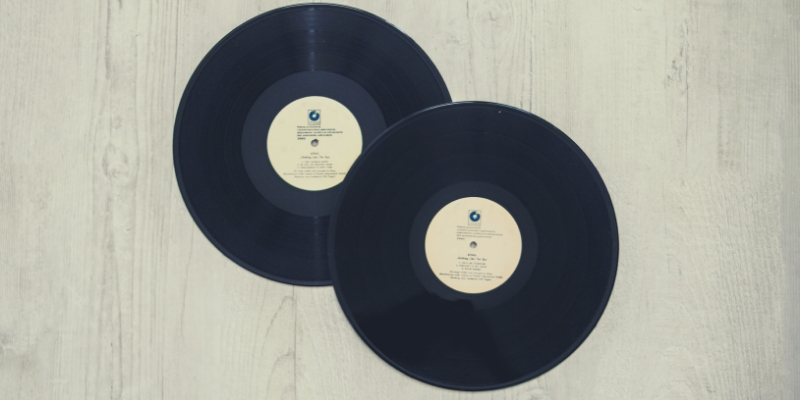Music Therapy
Music, as they say, is food for the soul. Different kinds of music connect to the deepest parts of us and let us feel special emotions. You can hear music everywhere we go and it helps you process emotions on your day to day encounters.

This is a post in our Guest Bloggers series. All opinions are those of the author. Please consult a professional for medical advice.
Music therapy | Using the healing power of music to reduce depression
Music is a huge factor in our lives, specifically emotional health. Time and again, it has been proven that listening to music, to your favorite songs and too upbeat sounds can generally improve your mood. Because of this fact, music has been widely used as a tool to reduce symptoms of depression through music therapy.
What is music therapy?
Music therapy is an established health procedure wherein an individual is made to listen to music and this is to address or improve cognitive, emotional, physical and social health requirements of every individual. It is a clinically approved type of therapy used by professional, mainly in the fields of emotional and cognitive health. Music therapy is one of the widely used procedures in handling and reducing symptoms of depression and anxiety and is proven to be most effective.

How does music therapy work?
Increased self-esteem
Music has the ability to let you regain your focus on yourself and reassess the self-care you give for yourself. When listening to uplifting types of music, especially when you are alone or when you are meditating, you become fully aware of your thoughts, the emotions you carry, and your confidence. This is the first step to increasing your self-esteem. Being able to look into your thoughts and emotions deeper allows you to know yourself more.
This is a strong foundation to build up your self-esteem in being in social situations and handling interactions with confidence. Music can help increase your self-confidence and alleviate social anxiety.
Music can help increase your self-confidence and alleviate social anxiety. Share on XEasing anxiety and discomfort during procedures
Music is a well-known and effective tool used for distraction and diversion of thoughts. This is why it is used in many medical procedures, where music is played either in the background of through the headphones to divert a patient’s attention while undergoing surgery.
A study was conducted on the theory proved that patients who listened to music before, during and after a medical procedure have less discomfort and quicker healing pace as compared to patients who did not listen to music. This is made possible because music gives a lasting positive effect on the subconscious that makes you feel comfortable and well.

Music can elevate your mood
Whether you are feeling sad, angry or even just neutral, there are types of music that will allow you to express yourself. On the other hand, listening to uplifting and happy music can have positive effects on your emotions and can effectively elevate your mood.
Music therapy is used by many specialists as a way to diminish symptoms of depression, anxiety and even dementia in adults. The happy and upbeat tune can have a lasting positive effect on the brain and can increase productions of happy hormones. Generally, whatever mood you may be in, upbeat and dance music can make you feel more energetic and happy internally. Listening to this kind of music continuously will make you feel upbeat and positive externally and this will show on your physical attributes.
Decreased anxiety
Anxiety is a common condition in individuals from the teenage years well up to the fifties. The causes may be different for each person, but the symptoms appear the same and can be quite troubling for some individuals. Research shows that listening to positive music and music therapy can have a good effect in terms of decreasing anxiety symptoms.
One effective method in music therapy is to listen to upbeat or positive instrumental music. Another method is to let the individual create music by playing musical instruments. Learning to play a musical instrument is another effective way to divert a person’s focus from the cause of anxiety to something that he/she can control, and this is by making music.

Music is a good kind of distraction
Nowadays, music is easily accessible anytime and anywhere, whether it is on your phone, music devices, or even when you are just walking around, music can be everywhere. Apart from being a type of entertainment, music is an effective tool for distraction and diverting attention. This is why it is also important to be mindful of the types of music you listen to because it can have a lasting effect and influence on your mood and emotions.
Listening to music can be an effective distraction, whether intentionally or you just want to block out your surroundings for a quick moment. Music is a good kind of distraction and music therapy is effective because it allows you to reconnect with yourself and evaluate your thoughts, decisions, and emotions. In a way, music helps you get to where you want to be by clearing your mind and focusing on yourself.
Music is a powerful tool that allows us to connect with one another and with ourselves. Through music, you get to discover your strengths and your ability to take control of your emotions, responses, and anxiety. Learning to play musical instruments is also an effective method of reducing depression and handling anxiety. You can take music lessons to learn how to play your own music and have a deeper understanding of yourself.
Curtis Dean writes on behalf of Sage Music School where they base lessons on the science and research of the psychology of learning. Their effective teaching methods create confident and capable students who enjoy the happiness of making music.


No Comments